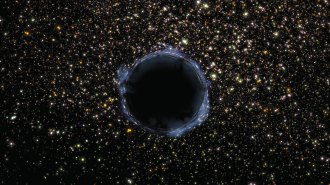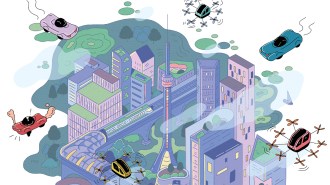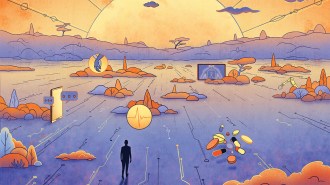Uncategorized
-
 Health & Medicine
Health & MedicineObesity needs a new definition beyond BMI, health experts argue
Experts say clinical obesity is more than a high BMI and instead is a disease in which excess body fat harms tissues, organs or doing daily activities.
-
 Environment
EnvironmentA podcast challenges us to reassess our relationship with wildfires
United by Fire lays out key insights from the two largest blazes in Colorado history, the Cameron Peak and East Troublesome fires of 2020.
By Nikk Ogasa -
 Health & Medicine
Health & MedicineGot a cold? A placebo might help
Amid doubts over a common decongestant, evidence suggests the placebo effect can still help people suffering from a cold.
-
 Cosmology
CosmologyHow we might finally find black holes from the cosmic dawn
After decades of study, scientists sound genuinely optimistic about the possibility of detecting primordial black holes, which might explain dark matter.
-
 Health & Medicine
Health & MedicineU.S. dementia cases may rise to 1 million per year by 2060
Baby Boomers may drive a drastic increase in dementia cases in coming decades, but there are steps people can take to reduce their risk.
By Meghan Rosen -
 Tech
TechFlying cars could soon become a reality
Engineers have all the technology they need to make flying cars, but there are still some barriers to getting these sci-fi mainstays off the ground.
-

Enter a new era for our storied magazine
Editor in chief Nancy Shute introduces the new look and format of Science News, as it moves from publishing biweekly to monthly.
By Nancy Shute -

-
 Climate
Climate2024 was Earth’s hottest year on record, passing a dangerous warming threshold
Global temperatures were the hottest on record in 2024; it was the first year where the average temperature topped 1.5 degrees Celsius above preindustrial times.
-
 Health & Medicine
Health & MedicineAI could transform health care, but will it live up to the hype?
AI has the potential to make health care more effective, equitable and humane. Whether the tech delivers on these promises remains to be seen.
By Meghan Rosen and Tina Hesman Saey -
 Humans
HumansHow child soldiers heal after the trauma of war
For more than two decades, Theresa Betancourt has studied Sierra Leone’s former child soldiers. Her new book Shadows into Light tells their stories.
-
 Neuroscience
NeuroscienceHow people suppress memories may be key to PTSD recovery
People who recovered from PTSD changed the way their brains handle intrusive thoughts, a study of survivors of the 2015 Paris terrorist attacks shows.